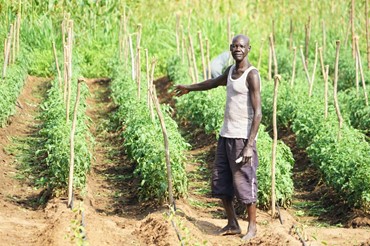Together with water and sanitation professionals from Kenya, Uganda, Tanzania, Rwanda and Zambia, this week I should have been in Zambia. Obviously, I am not. The last couple of weeks have turned everything upside down, and things we have taken more or less for granted are today less certain. As is the case for most people, the pandemic has impacted the work I do. However, the impact differs widely depending on not only your type of work, but also where you reside and how your society is managing the crisis. For me, the impact on my work has so far mostly been about postponing and finding alternative platforms for exchange of knowledge and delivery of activities. In the best of worlds, new innovative ways of running international training programmes could emerge from this crisis that are less-travel intensive. For others, however, work in times of COVID-19 is about taking huge personal risks to provide essential services, protect communities, and respond to the impact of the immediate crisis.
My thoughts these days are with my participant and alumni colleagues of SUWAS in Africa and Asia, many of whom now find themselves on the front-line of fighting the virus and reducing its toll on their communities. Bravely and with professional pride, they are ensuring communities are receiving access to safe water, sanitation services and information on how hygiene behaviour is key to protection from this disease. Representatives from local and county governments, in many cases from public health departments, are trying to implement and control restrictions in movements and public gatherings in cities and urban areas. Our participants from utilities are struggling to lessen the disruption in existing water supply services while also providing emergency support measures to enable basic water access and soap in communities, healthcare facilities, schools and market places. Not to forget those colleagues working to provide sanitation services, whose efforts are always critical to the functioning of our societies and the safe management of fecal matter as well as solid waste. Safe sanitation strengthens people’s immunity and resilience. We should all be very appreciative towards the people that are providing these services, today and every day.






